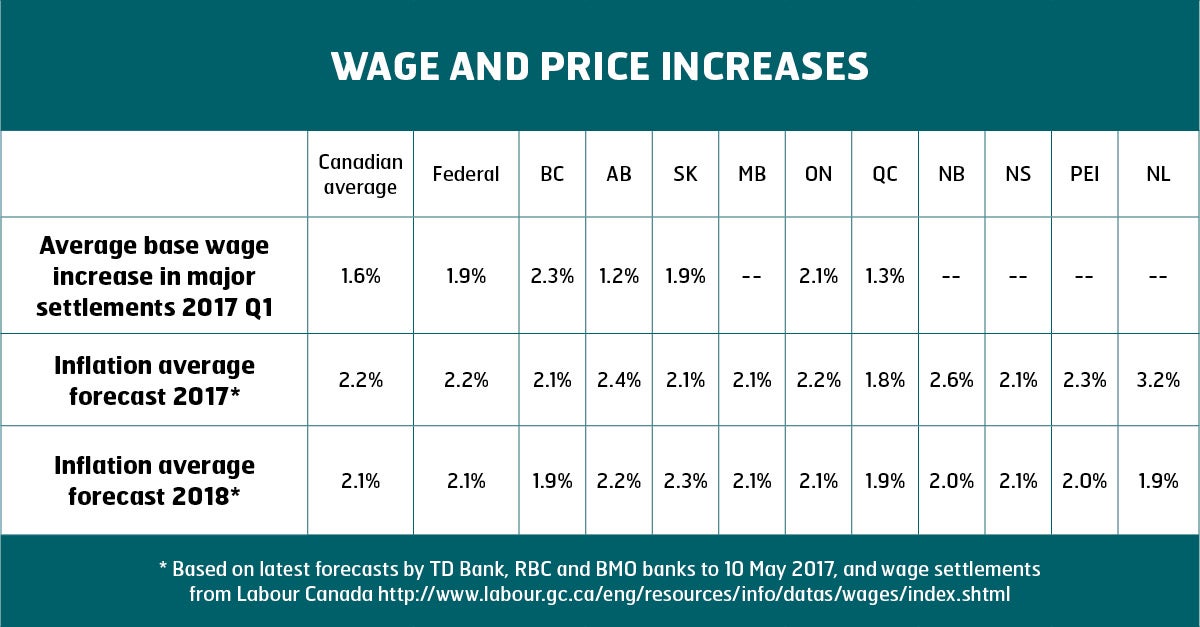There’s been a welcome increase in average base wage increases settled in large collective agreements in the first quarter of this year to 1.6 per cent, up from 1.3 per cent last year.
However, these agreements represent a small number of employees, and average wage increases will likely decline as additional settlements are factored in this year. Governments in Newfoundland and Labrador, Manitoba, and Saskatchewan are now either imposing or pushing wage freezes and/or cuts on public sector workers in their provinces.
Over the past seven years, base wage increases in collective agreements for public sector workers across Canada averaged just 1.4 per year, while consumer price inflation increased by an average of 1.7 per cent annually. This adds up to a real wage decline of more than two per cent since 2009. Further wage freezes and cuts will mean even deeper real wage declines for public sector workers.
Meanwhile consumer price inflation is predicted to increase in coming years, with major banks forecasting that consumer prices will increase by an average of at least two per cent this year and next. Inflation will be higher where provincial governments are increasing or plan to increase sales and other consumption taxes, such as Newfoundland and Labrador, New Brunswick and Saskatchewan.



